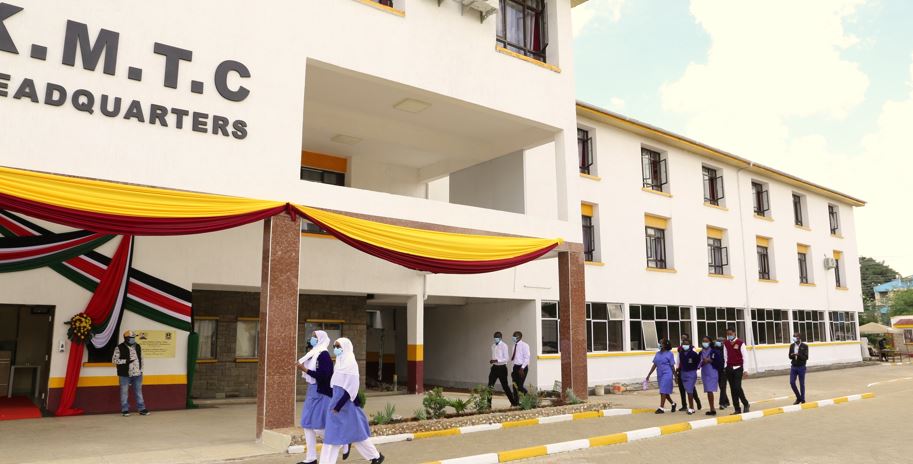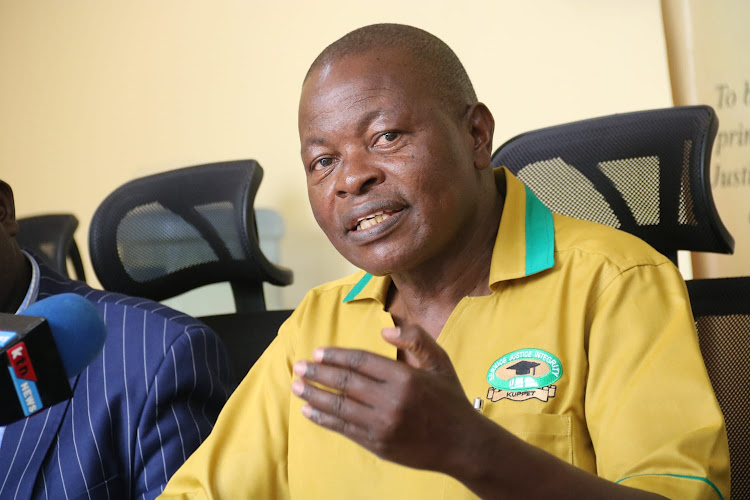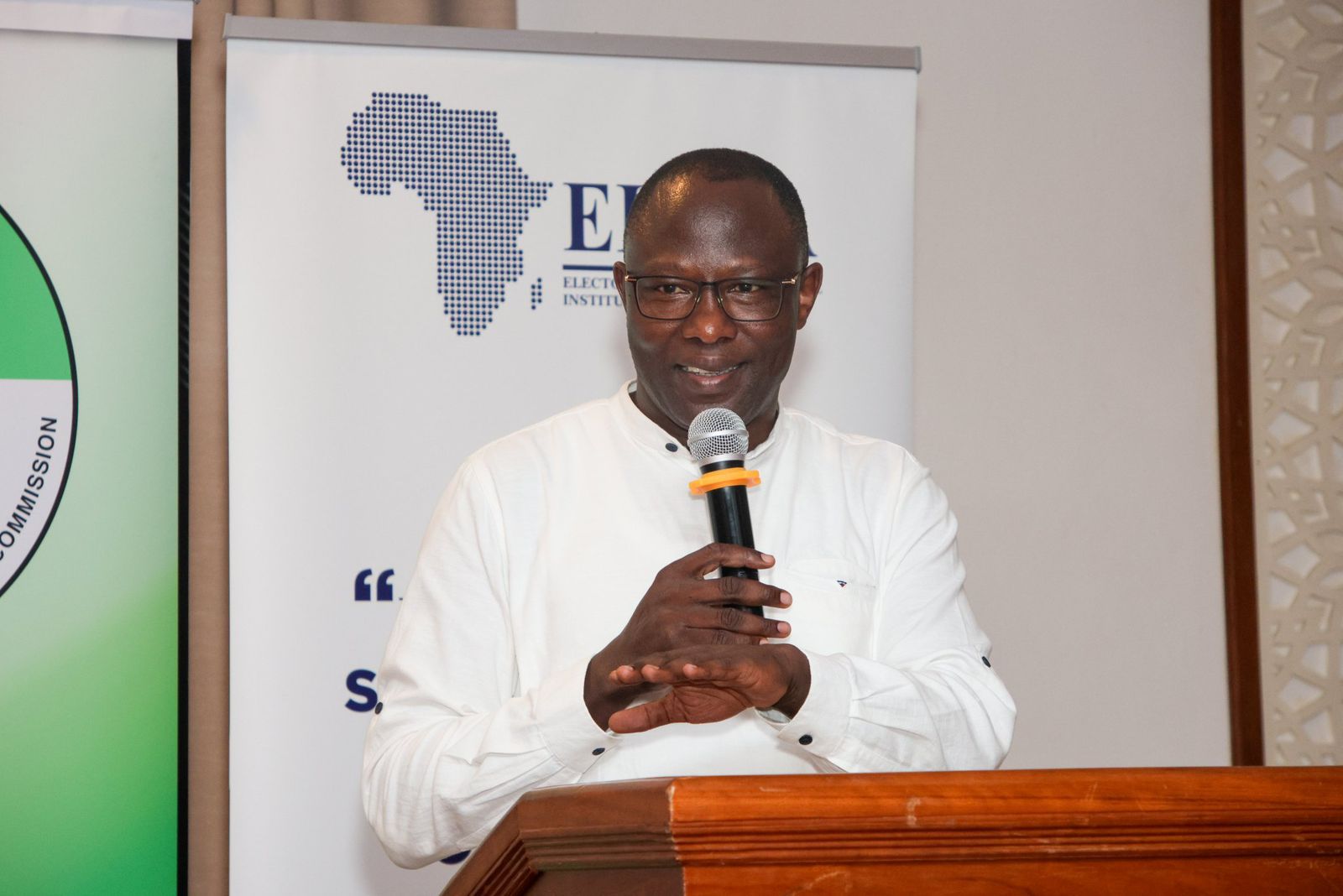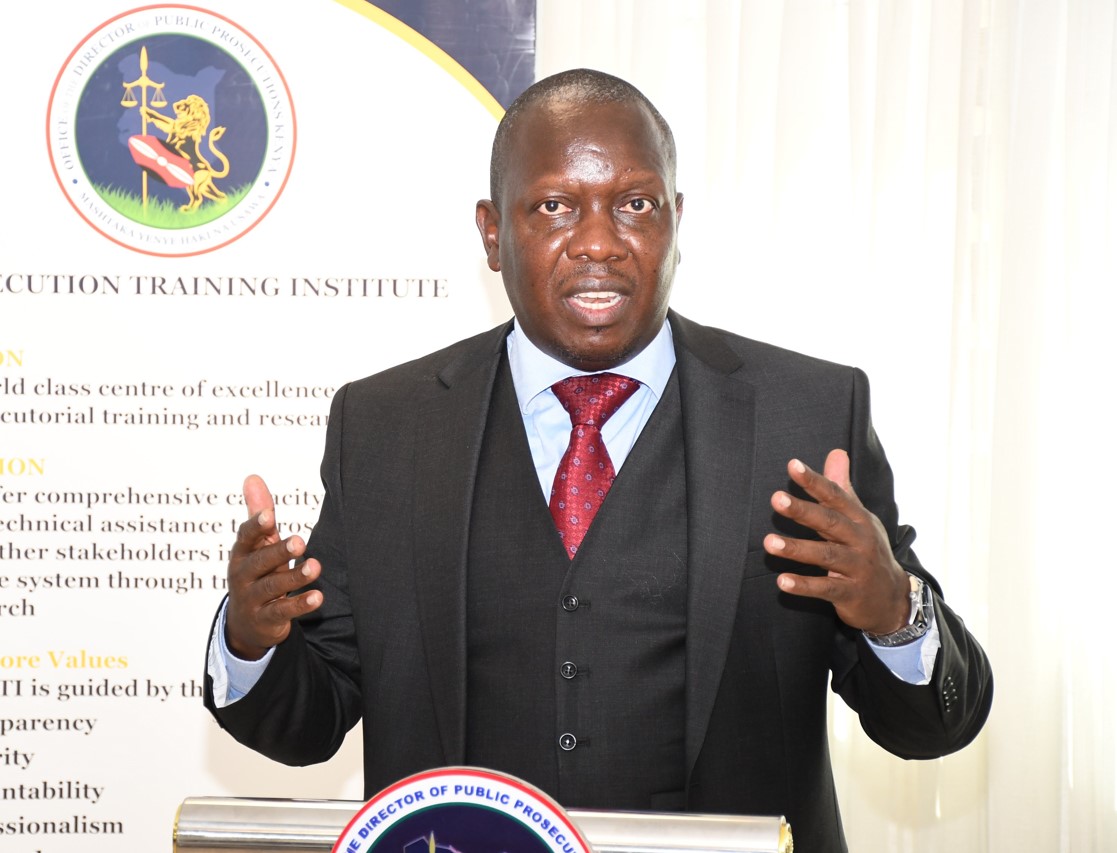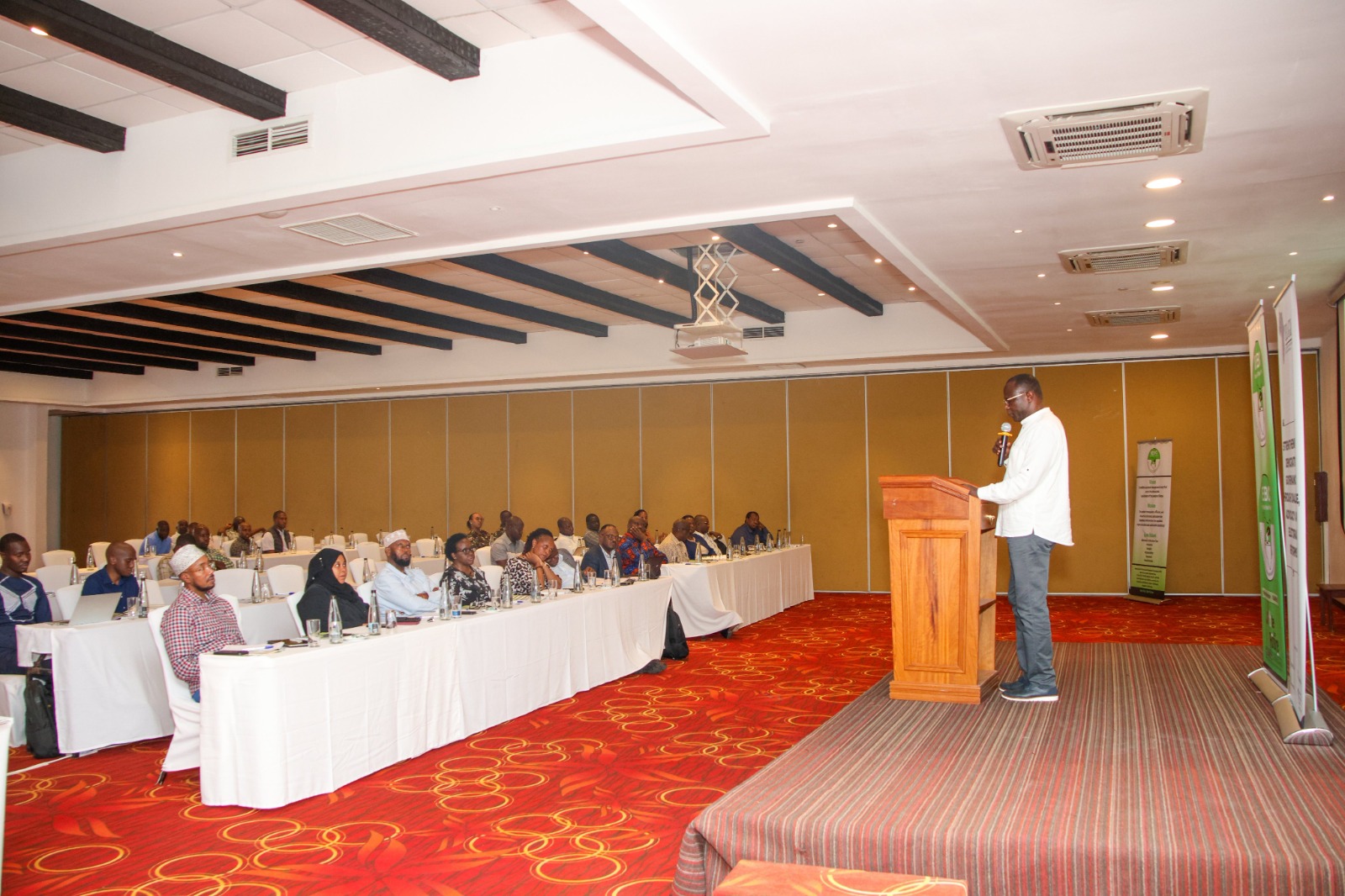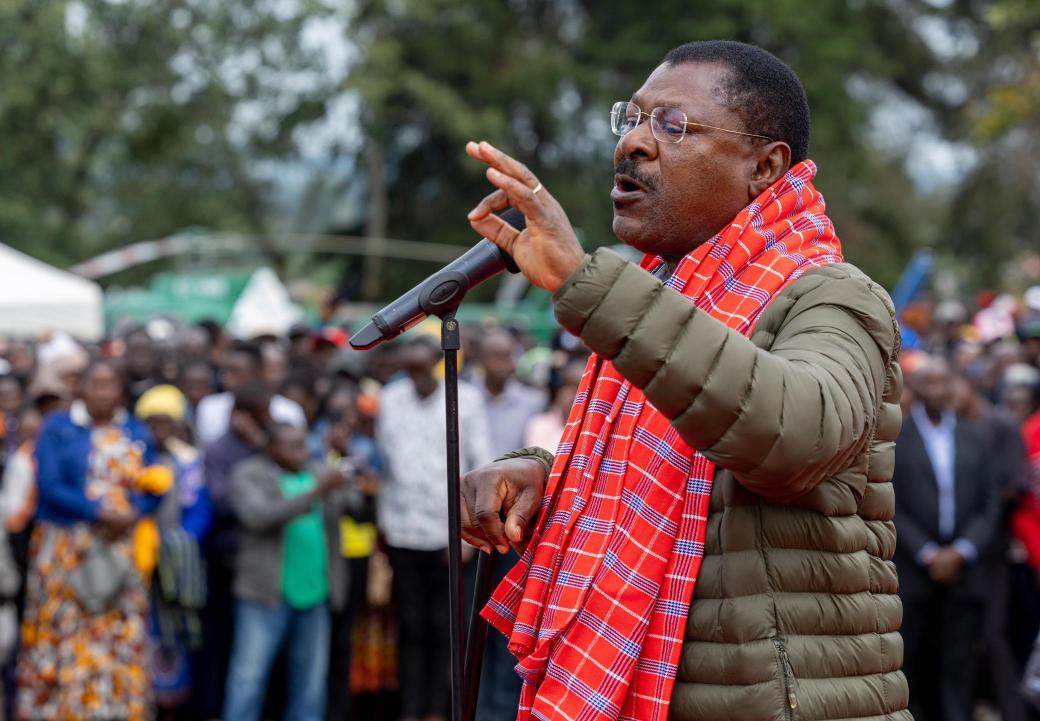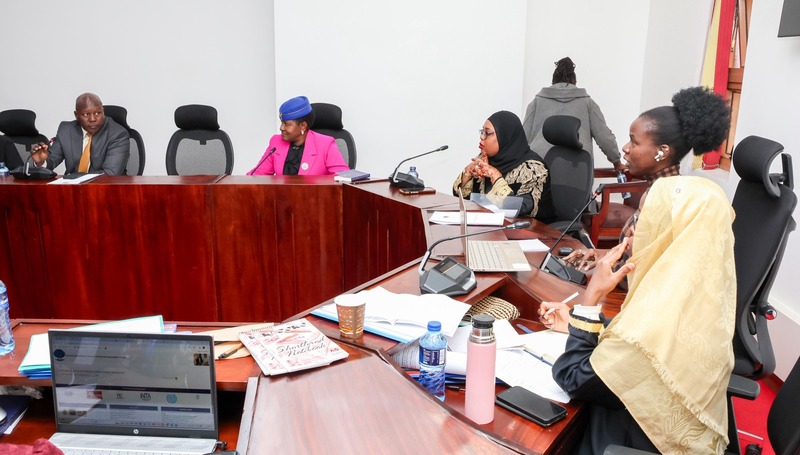Wetang’ula flags Finance Bill 2025 as urgent, directs committee to fast-track review
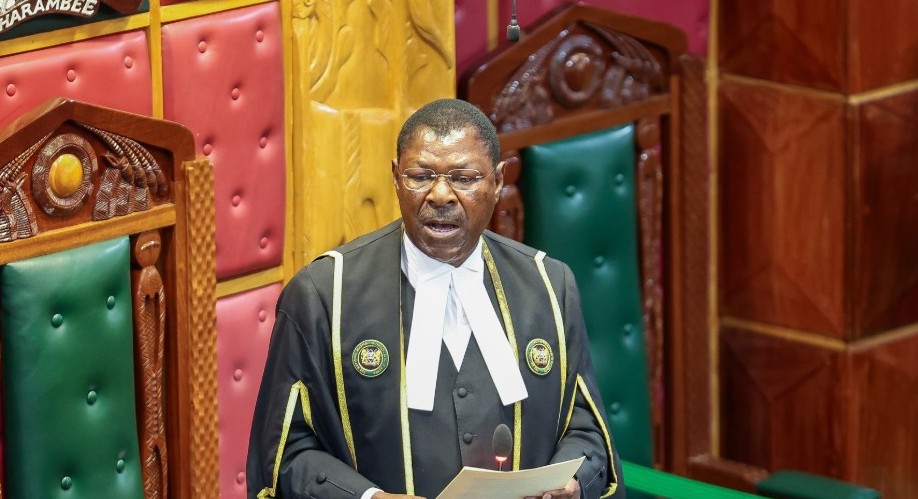
The Bill, which seeks to introduce amendments to tax and duty laws and address matters incidental to them, was published on May 6 and has since become due for First Reading.
The National Assembly has referred the Finance Bill 2025 to the Departmental Committee on Finance and National Planning for review ahead of the House’s resumption on May 27.
In a notification, National Assembly Speaker Moses Wetang’ula directed that the Bill be fast-tracked through the legislative process following a determination that it is of priority.
More To Read
- High Court petition filed to halt Ruto's Finance Act, citing economic hardship
- New tax rules, spending plan take effect after Ruto assents to three key Bills
- National Assembly passes Finance Bill 2025, targets Sh24 billion in new revenue
- MPs, senators strike deal, agree on Sh415 billion revenue allocation to counties
- MPs reject Treasury's plan to scrap VAT relief on mobile phones, solar, animal feeds
- MPs reject proposal granting KRA unrestricted access to taxpayers’ mobile money, bank data
The Bill, which seeks to introduce amendments to tax and duty laws and address matters incidental to them, was published on May 6 and has since become due for First Reading.
“In line with Standing Order 42(2), and pursuant to the resolution of the House passed on February 13, 2025, I have determined that the Finance Bill (National Assembly Bill No. 19 of 2025) is of priority,” Wetang’ula said in Notification No. 008 of 2025 issued during the long recess.
According to the resolution referenced, if a Bill becomes due for First Reading during either the short or long recess, and is found to be urgent, the Speaker is mandated to immediately refer it to the relevant committee under Standing Order 127 for consideration and public participation.
The Speaker is also required to report the action to the House upon resumption and facilitate the First Reading as soon as practicable. Wetang’ula further revealed that the Leader of the Majority Party had formally requested that the Bill be listed as priority business to be transacted when the House reconvenes.
He notified all Members of Parliament and the general public that the Finance Bill now stands referred to the Departmental Committee on Finance and National Planning.
“The Committee is to expeditiously consider the Bill and submit its report upon resumption of regular sittings of the House,” he said.
The Speaker also noted that once the House reconvenes, the House Business Committee will prioritise consideration of the Finance Bill.
Additionally, the Clerk of the National Assembly has been instructed to inform all MPs of the referral and facilitate the necessary public participation activities to allow the committee to engage stakeholders on the proposed legislation.
The early referral is aimed at ensuring that preliminary scrutiny and public engagement are concluded before the House resumes, paving the way for a timely First Reading and debate on the Bill.
The 2025/26 financial year budget is already facing significant financing constraints, with total projected revenues now revised downwards to Sh3.316 trillion, or 17.2 per cent of GDP, compared to Sh3.383 trillion, or 17.6 per cent, as projected in the 2025 Budget Policy Statement.
This includes ordinary revenue estimated at Sh2.757 trillion, or 14.3 per cent of GDP, and Appropriations-in-Aid amounting to Sh559.9 billion, or 2.9 per cent, representing a slight upward revision of Sh11.1 billion.
The reduced revenue outlook points to limited space for introducing new taxes even as pressure on public expenditure continues to mount. The Finance Bill, therefore, focuses more on tightening enforcement, rationalising incentives and enhancing compliance, rather than levying fresh taxes.
The Bill proposes changes to existing tax incentives, which the government argues have failed to deliver broad-based economic benefits. Instead, the incentives have largely favoured select businesses or sectors, fuelling profit concentration and distorting the tax regime.
One of the key highlights in the Bill is the proposal to exempt gratuity payments from taxation, bringing them in line with pensions under the Exempt-Exempt-Exempt regime. This would allow employees to retain more of their retirement savings, offering better income security.
The Bill also seeks to increase the tax-free per diem allowance for private sector employees from Sh2,000 to Sh10,000 per month when working outside their duty station. This is meant to align private sector treatment with that of public officers and follows previous amendments that raised exemptions on non-cash benefits.
In the area of value-added tax, the Bill proposes to move several items from zero-rated to exempt status, including pharmaceutical raw materials, transportation of sugar from farms to mills, locally assembled mobile phones, electric bicycles, solar and lithium-ion batteries, and animal feed production inputs. This change would limit VAT refunds for suppliers but aims to seal loopholes exploited for tax evasion.
To curb abuse of tax reliefs, the Bill empowers the Kenya Revenue Authority to impose VAT on goods or services that were initially exempt or zero-rated but are later used in ways inconsistent with their original purpose. While this measure is intended to boost compliance, it has raised concerns about fairness and transparency in its enforcement.
Provisions in the Bill also revive proposals from the previous year to grant the tax agency broader access to taxpayer data, blurring the lines between enforcement and data privacy protections. This has stirred debate about the balance between revenue collection and individual rights.
The Bill reintroduces the Cabinet Secretary’s power to waive penalties and interest in cases of system-related errors, a move welcomed by stakeholders, but implementation is delayed until January 2026. The delay has sparked concerns about continued exposure of taxpayers to charges stemming from issues beyond their control.
In support of the construction sector, which contracted by 2.0 per cent in the third quarter of 2024 compared to 4.0 per cent growth in the same period the previous year, the Bill proposes reducing the Export Investment Promotion Levy on key inputs such as iron and steel products from 17.5 per cent to 10 per cent.
Internationally, the Bill reintroduces Advance Pricing Agreements to address disputes in transfer pricing. The agreements would be valid for up to five years and are aimed at providing certainty for multinational companies and easing administrative burdens.
Further, the Bill provides clarity on the Minimum Top-Up Tax introduced in earlier laws, stipulating that it will be due within four months after the close of the income year.
To improve efficiency, the Finance Bill proposes extending the timeline for KRA to process tax refunds from 90 to 120 days, and for audit reviews from 120 to 180 days. However, the extensions are expected to worsen the cash flow situation for businesses that rely on prompt refunds for operational continuity.
The Bill also includes incentives to bolster the aviation maintenance sector by exempting all helicopter, aircraft, and spacecraft parts from the Import Declaration Fee and the Railway Development Levy, in a bid to make Kenya a regional hub for aircraft servicing.
Ultimately, the Finance Bill 2025 is centred on strengthening revenue collection through administrative reforms, reducing tax expenditures, and linking reliefs more directly to economic productivity. It aligns with the objectives set out in the National Tax Policy and the Medium-Term Revenue Strategy, aiming to make the tax system more efficient, equitable, and predictable.
Top Stories Today
